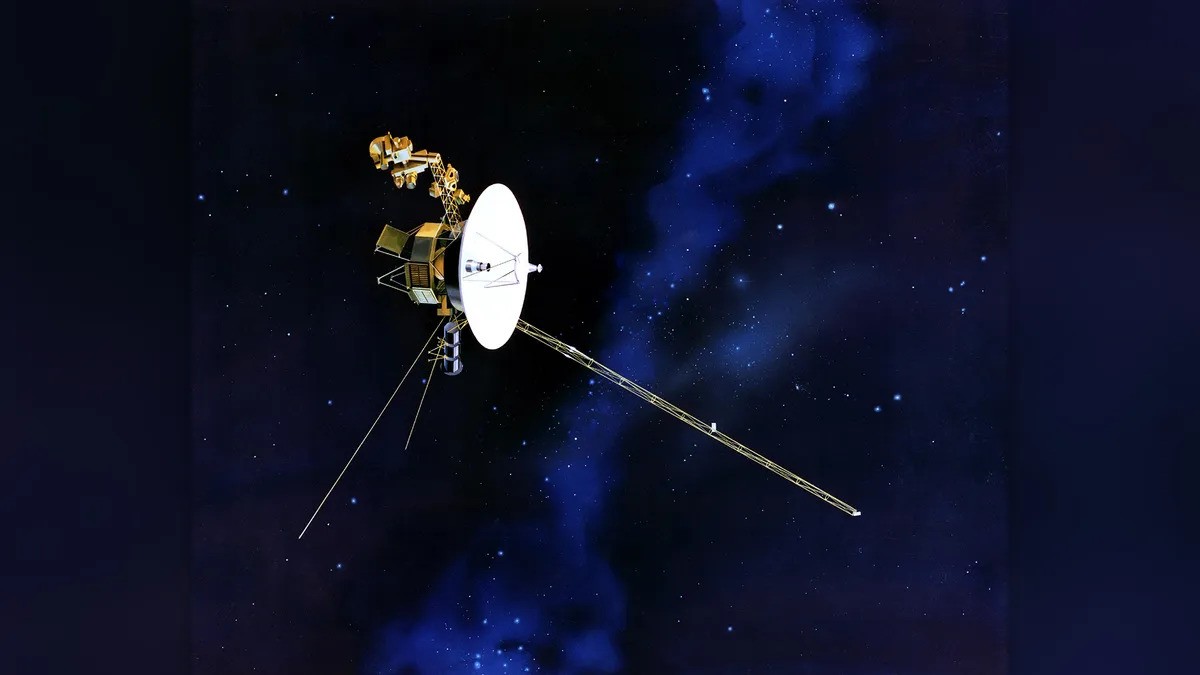NASA engineers discover why Voyager 1 is sending a stream of gibberish from outside our solar system
Voyager 1 has been sending a stream of garbled nonsense since November. Now NASA engineers have identified the fault and found a potential workaround.

For the past five months, the Voyager 1 spacecraft has been sending a steady stream of unreadable gibberish back to Earth. Now, NASA engineers finally know why.
The 46-year-old spacecraft sends regular radio signals as it drifts further from our solar system. But in November 2023, the signals suddenly became garbled, meaning scientists were unable to read any of its data, and they were left mystified about the fault's origins.
In March, NASA engineers sent a command prompt, or "poke," to the craft to get a readout from its flight data subsystem (FDS) — which packages Voyager 1's science and engineering data before beaming it back to Earth.
After decoding the spacecraft's response, the engineers have found the source of the problem: The FDS's memory has been corrupted.
Related: NASA's Voyager 1 sends readable message to Earth after 4 nail-biting months of gibberish
"The team suspects that a single chip responsible for storing part of the affected portion of the FDS memory isn't working," NASA said in a blog post Wednesday (March 13). "Engineers can't determine with certainty what caused the issue. Two possibilities are that the chip could have been hit by an energetic particle from space or that it simply may have worn out after 46 years."
Although it may take several months, the engineers say they can find a workaround to run the FDS without the fried chip — restoring the spacecraft's messaging output and enabling it to continue to send readable information from outside our solar system.
Sign up for the Live Science daily newsletter now
Get the world’s most fascinating discoveries delivered straight to your inbox.
Launched in 1977, Voyager 1 zipped past Saturn and Jupiter in 1979 and 1980 before flying out into interstellar space in 2012. It is now recording the conditions outside of the sun's protective magnetic field, or heliosphere, which blankets our solar system.
Voyager 1 is currently more than 15 billion miles (24 billion kilometers) from Earth, and it takes 22.5 hours for any radio signal to travel from the craft to our planet.

Ben Turner is a U.K. based staff writer at Live Science. He covers physics and astronomy, among other topics like tech and climate change. He graduated from University College London with a degree in particle physics before training as a journalist. When he's not writing, Ben enjoys reading literature, playing the guitar and embarrassing himself with chess.









